Aging means loss of muscle. Men at the age of 80 have typically lost 50% of the muscle they had in youth.
Let me emphasize – 50%. That sad statistic shows why strength training is crucial, and why older men should lift weights.
And listen up you younger men: muscle loss begins as early as your 30s, with 10% of your muscle disappearing each decade if you don’t do something about it.
Loss of muscle leads to frailty, lack of vitality, and disease, since muscle is an important determinant of insulin sensitivity. Do you want to go into older age with strength, vigor, and lust for life, or do you want to be weak, feel tired all the time, and feel like old age isn’t even worth the trouble?
Does aging cause muscle loss, or is aging just associated with it, being caused by something else, such as lack of activity? The short answer to that question, in my opinion, is that muscle loss and aging cause and feed on each other in a vicious cycle.
Older men respond robustly to weightlifting
Aging-related muscle loss is thought to be related to anabolic resistance, the condition in which aging muscle doesn’t respond to growth stimuli as well as does younger muscle. The two growth stimuli are dietary protein and strength training.
Muscle is a dynamic tissue, and breaks down and rebuilds regularly, in tune with daily rhythms of fasting and eating, and rest and training. The following diagram illustrates this.

Muscle protein breakdown (MPB) proceeds at the same magnitude in both younger and older people, but muscle protein synthesis (MPS) in older people is lower than in young people, and when this goes on for a long time, muscle loss results.
What can older men (and women) do about this? Lift weights.
The muscle synthetic response on older men remains robust, and they gain muscle and improve their metabolism.
In a study of older men doing high-intensity weight training, men aged 60 to 75, average age 64, trained for 16 weeks using heavy loads (85 to 90% of 1RM). Note that while the study calls the protocol “high-intensity”, it’s not what is normally meant by that term, which means going to failure and pushing muscles to their utmost. In this case, they’re referring to using heavy weights.
The results after less than 4 months of training:
- Body fat dropped by 3 percentage points, from 24.5 to 21.6%, with no dietary intervention.
- Muscle strength increased from 50 to 80%.
- Aerobic capacity (VO2max) increased.
- Lipid profiles improved; cholesterol/HDL ratio went from high to moderate risk.
The authors of the study made the following points:
- Older men respond robustly to heavy resistance training, similarly to younger men.
- Peak aerobic and working capacities showed significant improvement.
- The level of exercise intensity in older men needs reevaluation.
- Heavy resistance training can be practiced by older men and is safe and healthy.
To my mind the most important point is the third: if you’re older, don’t be fooled by people telling you that walking a few times a week for a few miles a day is enough.
Get off your duff and lift weights.
We often hear that adults should aim for 150 minutes a week of moderate intensity aerobic activity. Examples of moderate activity include “brisk walking, swimming and mowing the lawn.” So according to this, walking for 30 minutes, 5 times a week, is sufficient.
But you’ll lose muscle by doing only that.
To be fair, health authorities increasingly recommend some strength training.
But using resistance bands, water paddles, or for most people, their own body weight, isn’t going to cut it. Every older person that’s capable of it should lift weights. Heavy weights.
Even with all the emphasis on aerobic capacity as a promoter of good health, lifting weights significantly improves aerobic capacity in older adults.
Adding more protein and cutting out some of the carbs, when combined with regular strength training, will produce outstanding results. (In the above studies, no dietary changes were made.)
Conclusion
Men lose muscle as they age, but they don’t lose the ability to increase it by lifting weights.
Exercise prescriptions for older men are inadequate. They need to do more than walk.
Lift weights and you’ll see large improvements in body composition, with less body fat and more muscle.
Functional ability will increase, but perhaps even more importantly, self-confidence and sense of well-being will shoot through the roof.
PS: To learn about how more muscle leads to better health and how to train for strength, get my book, Muscle Up.

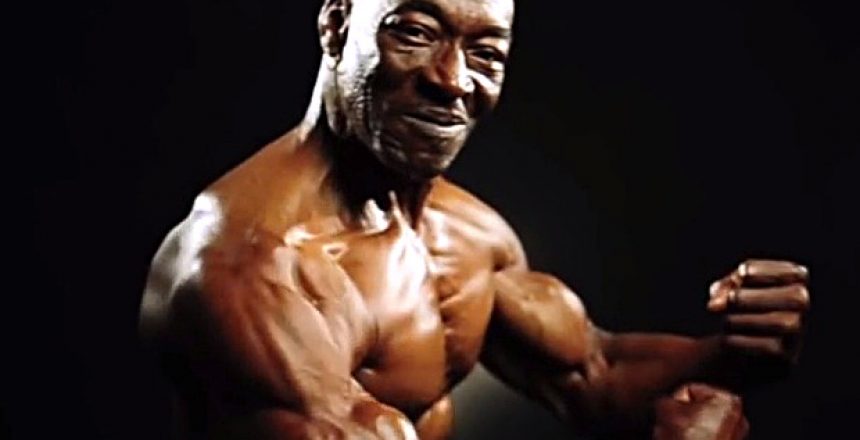


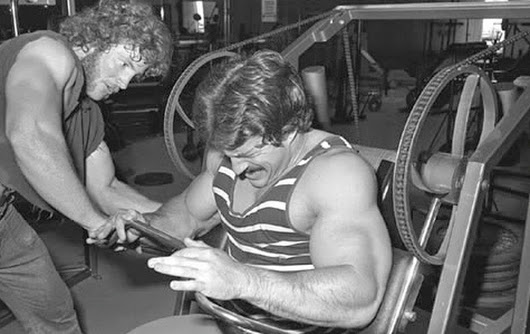
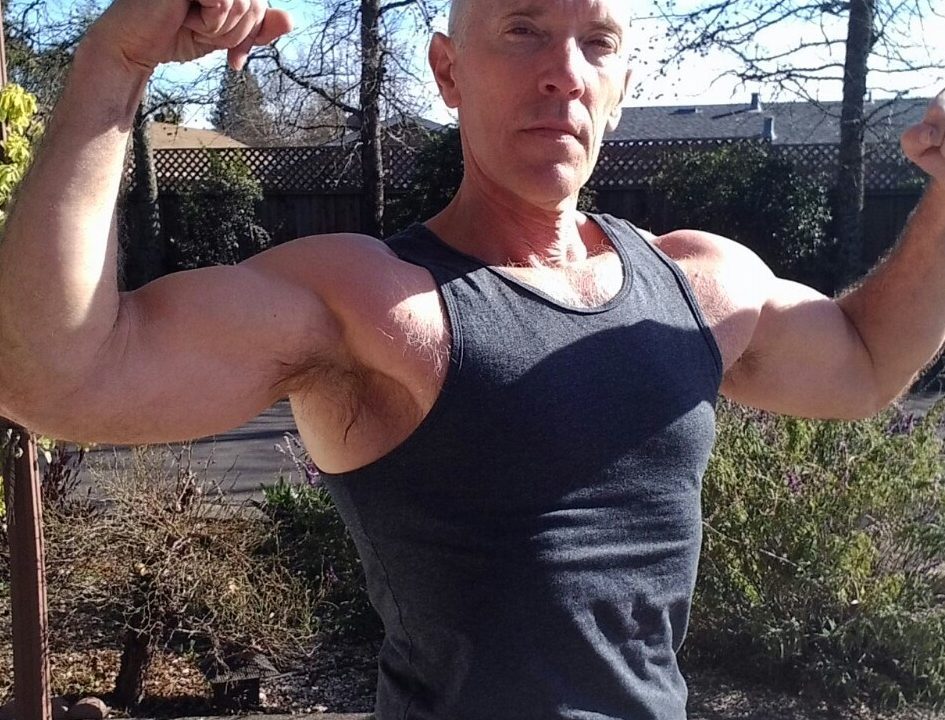
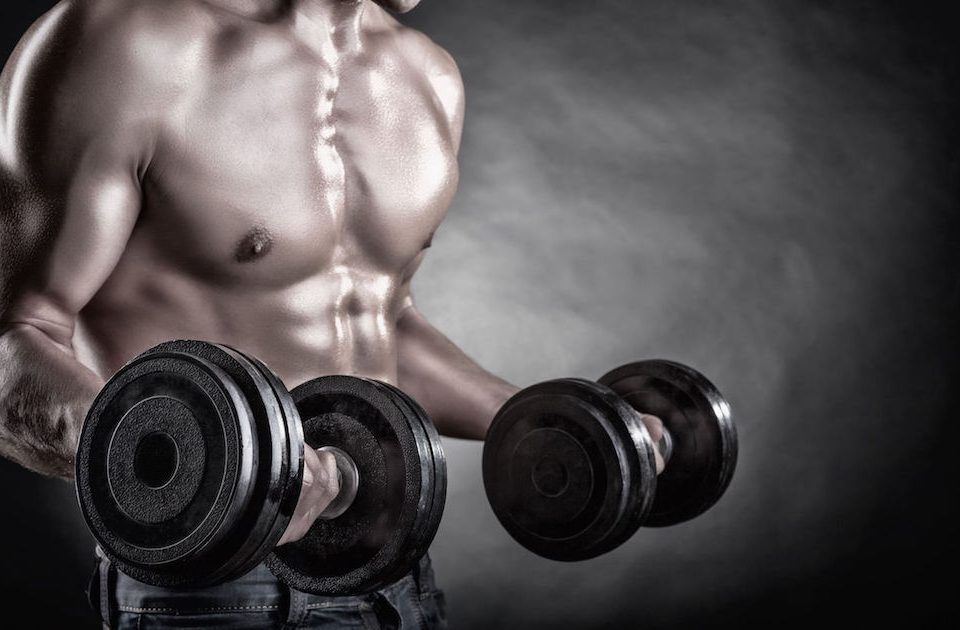
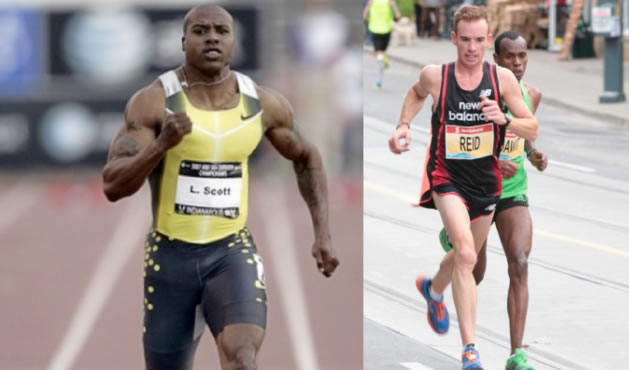







9 Comments
You’re preaching to the converted. I already love it. Great article.
So, after puttering around with my own set of wgts., at age 15 ( being outside constantly was way more fun, & dang, didn’t I loose my Crystal Ball) & then doing same in my mid 20’s….what?, me grow old, not me. Actually had one of those 100 lb. plastic covering the cement plates set & I never touched them. Dumb on my part #2! Then, skipping ahead to 47, on the cusp of being 48, I smartened up, but…whoa! not so fast my friend. Not from someone who’s motto was, when I get the urge to exercise I lie down until the urge passes. Think I stole that from the comedian Louis Anderson. Then, after 30 yrs. driving big trucks, back surgery, becoming a full diabetic & yada yada & a separation, I thought, by age 56…yikes! I guess I’m not omnipotent after all. Dang that Crystal Ball. Anywho, having that all confirmed by my doc, I got serious about getting with the iron. How serious? Well, gyms are persona non grata, so everything is done in house (my apt.). Won’t bore you to tears with the particulars but, with 1 blown bicep in my right arm & 2 blown in my left arm I still curl. The latter may all be in my head, but, it comforts me none the less. Will be 63 in late August & tho’ I thought I’d be driving big rigs into my 80’s maybe smartening up about my health, including lifting is my true substitute, tho’ I didn’t know it. Only wish the myrid of guys my age & younger would take my advice & avoid my pitfalls. What’s that old addage, you can lead a horse to water but you can’t make him drink? On that, I found my own way, finally, to the trough & I’m gladly drinking my fill. Over & over & over again. ???
My 70 year old joints say otherwise. One weightlifting injury could do me in. If you have suggestions about designing a low-risk program, I’d like to see it. Maybe there is a geezer with experience in this, but the trainers are all children.
Maybe your joints need some weightlifting. As for risk, you need not lift heavy weights so long as you lift with intensity.
Iron Grandpa:
https://dailyasianage.com/news/58246/iron-grandpa-a-72-year-old-finnish-weightlifter
All I can say is “hear hear!” Turning 64 in July. Today will do a Max Pyramid routine: this time it’s pulldowns, bench, squats with a hip belt. This and intermittent fasting has stopped me from feeling like an old man.
DOB 12/1953 Approximately two years ago I determined that Crossfit wasn’t getting me stronger. I then started taking Olympic Weightlifting classes, quickly became intrigued with the sport and proceeded to join their Oly team (RWL) I’m now getting stronger, with more flexibility and endurance. Lifting heavy weight as shown results for me.
Maybe your joints need some weightlifting